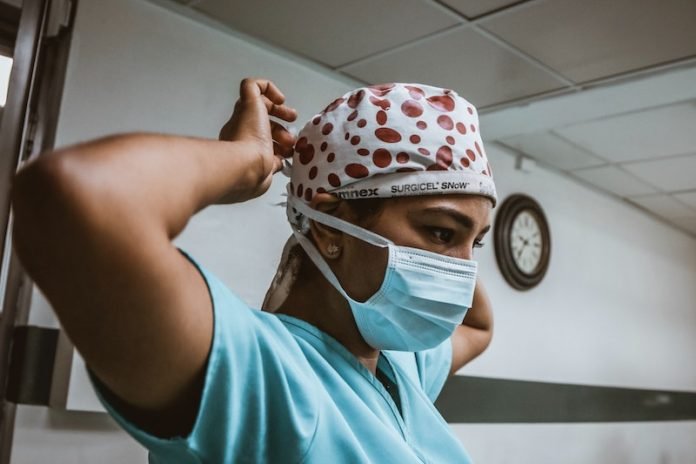
Scientists from from Augusta University found the cause of the tremendous range of responses to infection with the COVID-19 virus—from symptom-free to critically ill.
They found in some of the sickest patients a handful of rare structural gene variants involved in body processes, like inflammation, which the virus needs to be successful.
The research is published in journal iScience and was conducted by Dr. Ravindra Kolhe et al.
In the study, the team used optical genome mapping, to get a thorough, three-dimensional assessment of the genome of 52 severally ill patients with COVID-19.
In nine of the sickest patients, they identified seven rare structural variants affecting a total of 31 genes involved in key pathways mediating the response between a person, or host, and a virus.
These include innate immunity, our frontline immune defense against invaders like viruses; the inflammatory response, a key response to an infection that, gone awry, can also destroy the lungs of some of the sickest patients; and the ability of a virus to replicate and spread.
The data show that large (structural variants) identified using optical genome mapping might further explain the inter-individual clinical variability in response to COVID-19.
Large structural variants account for much of the genetic diversity among us, including changes that are just unique to the individual and those that can increase their risk of problems like cancer.
Optical genome mapping is an emerging technology that can detect these larger variants with multiple changes, like deletion or insertion of genetic material and/or when a section of a chromosome is reversed.
The researchers say that while more work needs to be done, their findings of the potential role of structural variants in the host-virus interaction point toward the need to look for genetic variations, ideally with a simple-to-use blood assay.
Once identified, the goal would be to initiate proactive moves for these individuals like ensuring vaccination and boosting and potentially more aggressive treatment early on, like monoclonal antibody therapy, to help these individuals better combat COVID.
Clinical studies have identified factors like older age, being male, high blood pressure, diabetes and other chronic conditions as risk factors linked to the degree of illness from COVID-19.
The nine sickest patients in this study shared common comorbid conditions, 32 of the patients required mechanical ventilation to support their breathing and a total of 13 of the 52 patients died while in intensive care.
But in their studies, which also included people who were negative for the COVID-19 virus and those who were positive but asymptomatic, there were again outliers, including individuals with comorbid conditions who remained asymptomatic when infected with SARS-CoV-2 and those who were perfectly healthy but became extremely ill when infected.
This is another indicator of the role of genetics in determining the degree of response.
Some studies have found that blood type might be a factor in predicting risk, specifically type A, and there have been some specific gene findings as well that predispose to immune deficiencies that may make people more susceptible.
If you care about COVID, please read studies about test that can quickly identify COVID-19 infection and severity, and health care workers change their minds on COVID vaccinations.
For more information about COVID, please see recent studies about drug that may relieve painful ‘long covid’ symptoms, and results showing this existing drug can save damaged lungs in COVID-19.
Copyright © 2022 Knowridge Science Report. All rights reserved.



